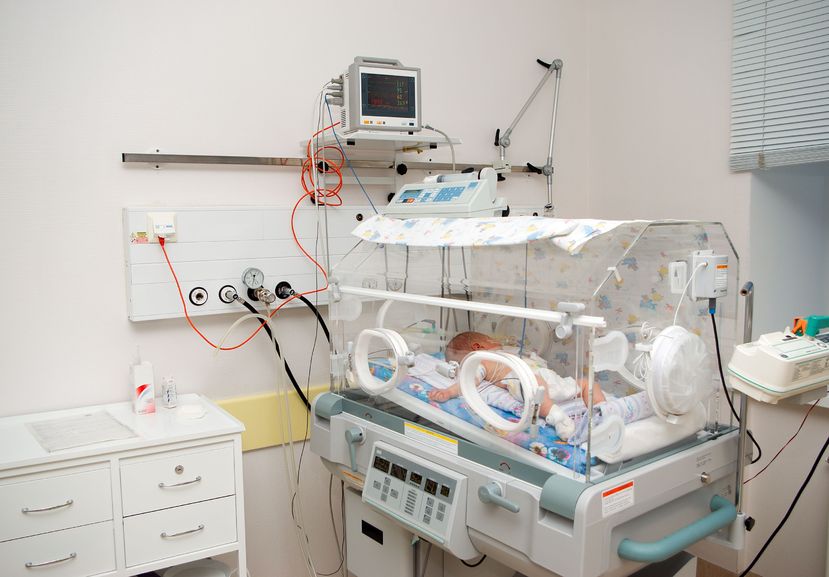
Special Baby Care Unit: A Haven for Premature and Critically Ill Newborns
Introduction
The arrival of a newborn baby is a joyous occasion, but for some families, it can also be a time of worry and uncertainty. Premature babies or those born with serious medical conditions require specialized care to ensure their survival and well-being. Special Baby Care Units (SBCUs) are dedicated facilities within hospitals that provide comprehensive care for these vulnerable infants.
Definition and Purpose of SBCUs
SBCUs are specialized hospital units designed to provide intensive care for premature infants (born before 37 weeks of gestation) and critically ill newborns. These units are staffed by a team of highly trained healthcare professionals, including neonatologists (pediatricians specializing in newborn care), nurses, and respiratory therapists.
The primary purpose of SBCUs is to provide a safe and nurturing environment for infants who require advanced medical support. These units are equipped with state-of-the-art technology and specialized equipment to monitor and treat a wide range of conditions, including:
- Prematurity
- Respiratory distress syndrome
- Jaundice
- Infections
- Birth defects
- Neurological disorders
Components of SBCUs
SBCUs typically consist of several components to provide a comprehensive range of care for premature and critically ill newborns:
- Isolettes and Incubators: These enclosed units provide a controlled environment for infants, regulating temperature, humidity, and oxygen levels.
- Ventilators: These machines assist infants with breathing when they are unable to breathe on their own.
- Phototherapy Units: These devices emit blue light to treat jaundice, a condition caused by a buildup of bilirubin in the baby’s blood.
- Monitoring Equipment: Advanced monitors track vital signs, such as heart rate, respiratory rate, and oxygen saturation, to ensure the infant’s well-being.
- Nutritional Support: Premature and critically ill infants often require specialized nutritional support through intravenous fluids or tube feeding.
- Developmental Care: SBCUs prioritize developmental care, providing a nurturing environment that supports the infant’s physical, cognitive, and emotional development.
Admission Criteria
Admission to an SBCU is based on the infant’s medical condition and the level of care required. Infants who meet the following criteria may be admitted to an SBCU:
- Premature birth (less than 37 weeks of gestation)
- Low birth weight (less than 2,500 grams)
- Respiratory distress syndrome
- Severe jaundice
- Congenital heart defects
- Neurological disorders
- Other serious medical conditions
Care Provided in SBCUs
SBCUs provide a comprehensive range of medical and developmental care for premature and critically ill newborns. This care includes:
- Medical Management: Neonatal specialists monitor and treat the infant’s medical condition, providing medications, respiratory support, and other interventions as needed.
- Nutritional Support: Infants receive specialized nutritional support through intravenous fluids, tube feeding, or breast milk.
- Developmental Care: SBCUs prioritize developmental care, providing a nurturing environment that supports the infant’s physical, cognitive, and emotional development. This includes providing touch, stimulation, and opportunities for interaction.
- Family Support: SBCUs recognize the importance of family involvement in the infant’s care. Parents and family members are encouraged to participate in the infant’s care and are provided with support and education.
Discharge from SBCUs
The length of stay in an SBCU varies depending on the infant’s medical condition and progress. Infants are typically discharged when they are stable and able to breathe, feed, and maintain their body temperature on their own.
Before discharge, the SBCU team provides parents with comprehensive instructions on how to care for their infant at home. This includes information on feeding, bathing, monitoring vital signs, and recognizing signs of illness.
Benefits of SBCUs
SBCUs play a crucial role in improving the outcomes of premature and critically ill newborns. These units provide:
- Specialized Care: SBCUs are staffed by highly trained healthcare professionals who specialize in the care of premature and critically ill infants.
- Advanced Technology: SBCUs are equipped with state-of-the-art technology and specialized equipment to monitor and treat a wide range of conditions.
- Nurturing Environment: SBCUs provide a safe and nurturing environment that supports the infant’s physical, cognitive, and emotional development.
- Family Support: SBCUs recognize the importance of family involvement and provide support and education to parents and family members.
Conclusion
Special Baby Care Units are essential facilities within hospitals that provide specialized care for premature and critically ill newborns. These units are staffed by highly trained healthcare professionals and equipped with advanced technology to ensure the survival and well-being of these vulnerable infants. SBCUs provide a comprehensive range of medical and developmental care, supporting the infant’s physical, cognitive, and emotional development. By providing specialized care in a nurturing environment, SBCUs play a crucial role in improving the outcomes of premature and critically ill newborns.
